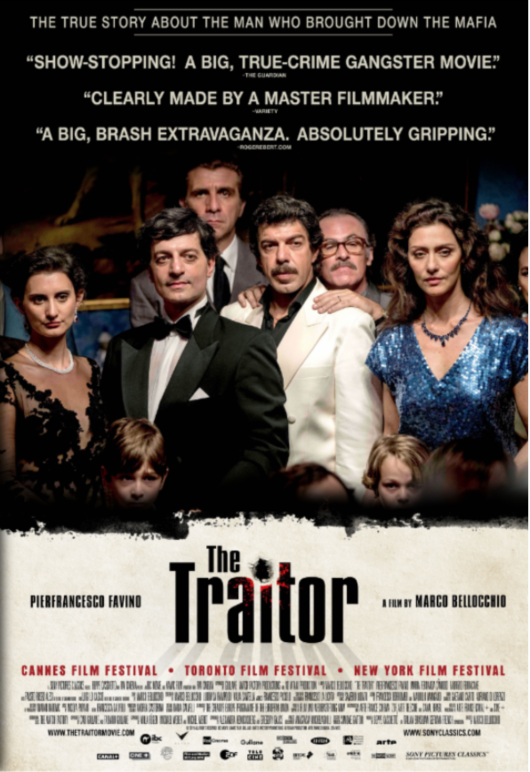Italy Bets on Bellocchio’s “The Traitor” for the Oscars
On January 13, the Academy will announce the five international nominees. Competing films include “Dolor y Gloria” by Pedro Almodovar (Spain), “Les Miserables” by Ladj Ly (France), and “Parasite” by Bong Joon Ho (Korea)
Having spent over 50 years working in the movie industry and accrued vast recognition, Marco Bellocchio is one of the last few Italian directors who continue to make socially engaged films. “In the past, film was more involved with society,” the lombardese director likes to repeat when asked why he decided to dedicate his career to making movies about the turbulent history of Italian politics (“Good Morning, Night,” “Vincere,” “Dormant Beauty,” “Fists in the Pocket”), along with more narrative ones (“Blood of My Blood,” “The Nanny”) as well as more introspective and private ones (“Sorelle,” “Sorelle Mai”).
With “The Traitor” Marco Bellocchio brings the story of Tommaso Buscetta, the former “Boss of the two Worlds,” a quintessential womanizer, the first member of Cosa Nostra to become a police informant, to the screen. After premiering at the 72nd Cannes Film Festival, and garnering a great reception from the audience during the most recent New York Film Festival, the film is now in the 2020 Oscar race.
“Betrayal is not always despicable - Bellocchio repeatedly stressed - it can be a heroic act. Before deciding to collaborate, Buscetta risked dying, he attempted suicide.” Upon finding out that his latest work had been selected to be part of the 5 films competing for the International Feature Film Award, he instead commented: “As an old anarchist and pacifist, it’s an honor.”
“The Traitor” mesmerized American audiences. Many see it as an inverted ganster movie. It ignores the genre’s conventions and creates criminals that torment and spite each other with bloody ambushes. As all his previous films, “The Traitor” tells a story to immerse us into the protagonists’ interior struggles, men who are more or less just, more or less unhappy, more or less looking for something to give meaning to their existence. But that’s not all there is to the movie. Bellocchio reaffirms his vision of how family influences people’s lives. Buscetta decided to start talking to survive, to protect his family.
The film owes its success to the extraordinary acting abilities of Pierfrancesco Favino, who acts both in sicilian dialect and portuguese. In order to get into the mind of an ambiguous character, torn between being a mobster and having distinctive ethic principles, the Roman actor has said he drew inspiration from Buscetta’s interview tapes. “I tried to find out what he didn’t want people to know about him, I studied the procedural documents, his gestures, his language. I knew I was playing a criminal but I wanted to suspend judgement, even if the things he has done are unforgivable. But if this film serves to delve deeper into what we still don’t know about him then all the better.”
On November 21, the film will be on view at 6pm in the Walter Reade Theater at Lincoln Center as part of the Italy on Screen Today Film Fest, directed by Loredana Commonara.
RSVP italyonscreen2019@gmail.com










































i-Italy
Facebook
Google+
This work may not be reproduced, in whole or in part, without prior written permission.
Questo lavoro non può essere riprodotto, in tutto o in parte, senza permesso scritto.